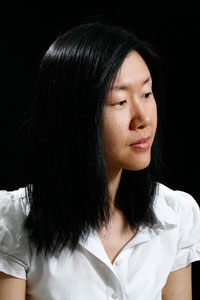Thailand has been hit with the sixth wave of Covid-19 and fears are abound that August will see a surge of new cases as well. Many doctors are predicting that the number will peak around the end of this month.
We're entering into the third year of the pandemic and I can no longer remember all the variants and subvariants. I only know that the deadly virus is still hovering around and ready to attack once we let our guard down.
I'm among the majority of people who haven't caught the disease yet. This is probably because I always stick to masks, social distancing and hand washing whenever I leave home. Also, I avoid going to crowded places unless very necessary.
However, looking at cases of people who got infected despite caution, I can't help but wonder if it's possible I might have been infected sometime before without realising it.
Two weeks ago, Prof Dr Nithi Mahanonda, secretary-general of Chulabhorn Royal Academy, posted research from overseas on Facebook. It explains two of the most frequently asked questions -- why do some people not catch the virus despite exposure and why do some, unvaccinated or long overdue for the next dose, only have mild illness after infection?
The doctor concludes that the possible factors lie in the genetic quality of their bodies, as well as strong T-cells in their immune system that can recognise foreign antigens. He called those special genes and T-cells "blessings from heaven", which help protect them against infection.
He said that we could never know if we were blessed with the same thing in our bodies through normal check-ups. But, he insisted that staying strong and getting enough rest could help boost T-cells to function properly.
Honestly, I don't worry much if I will accidentally get infected. I'm fully vaccinated and confident that my natural immunity is robust enough to help prevent me from severe illness.
Instead, I'm more concerned about long Covid or the long-term effects that many Covid-19 survivors have to endure -- notably fatigue, breathlessness, brain fog, muscle pain, fever, loss of taste, loss of smell and depression.
The syndrome has been widely reported, but the incidence and risk factors for the condition are not well understood. It's also not clear how long the condition lasts. It can be one to three months for some but as long as six to nine months for others.
Last month, I came across a report of a long Covid sufferer in Canada whose torment persisted to the point where she demanded voluntary euthanasia.
According to the news, a former chef in her 50s, Tracey Thompson contracted Covid-19 more than two years ago. But, her symptoms still dictate her days, leaving her with heavy-weighted fatigue, and robbing her of energy and the ability to return to work.
She has also experienced other symptoms including blurred vision, difficulty digesting food, difficulty breathing, an altered sense of taste and smell, not to mention scars on her heart from swelling due to myocarditis.
Even though she said that she was still happy to be alive, she couldn't see how she would be able to survive while she was basically bedbound and about to run out of money in the months to come.
All of these have pushed her to apply for "medical assistance in dying", a procedure that allows a doctor to administer medication to patients, at their request, in order to relieve their suffering by bringing about death.
Taking effect in 2016, Canadian law requires two medical practitioners to approve the request. So far, she has sought one doctor's approval for the procedure and is waiting to hear from a second specialist to confirm that she meets all the criteria including the one that says that the patient must have a grievous and irremediable medical condition.
"My choices are basically to die slowly and painfully, or quickly. Those are the options that are left," she told the media.
I don't know what to say about her decision. I only wish that all the experts out there will be able to find a remedy for her condition before her request is fully granted so that she can go back to enjoying life as before.
Her story is a testament to the fact that we can never underestimate the perils of Covid-19 and should continue to live a careful life with our guard held high again.
It might sound cruel to explain the loss of so many lives from Covid-19 with the famous "survival of the fittest" theory that many people have talked about.
But, I personally believe that a basic key to help us survive both Covid-19 and long Covid simply lies in the way we keep ourselves strong -- physically and mentally. For me, the practice is a blessing that we can make on our own.
Patcharawalai Sanyanusin is a writer for the Life section of the Bangkok Post.
